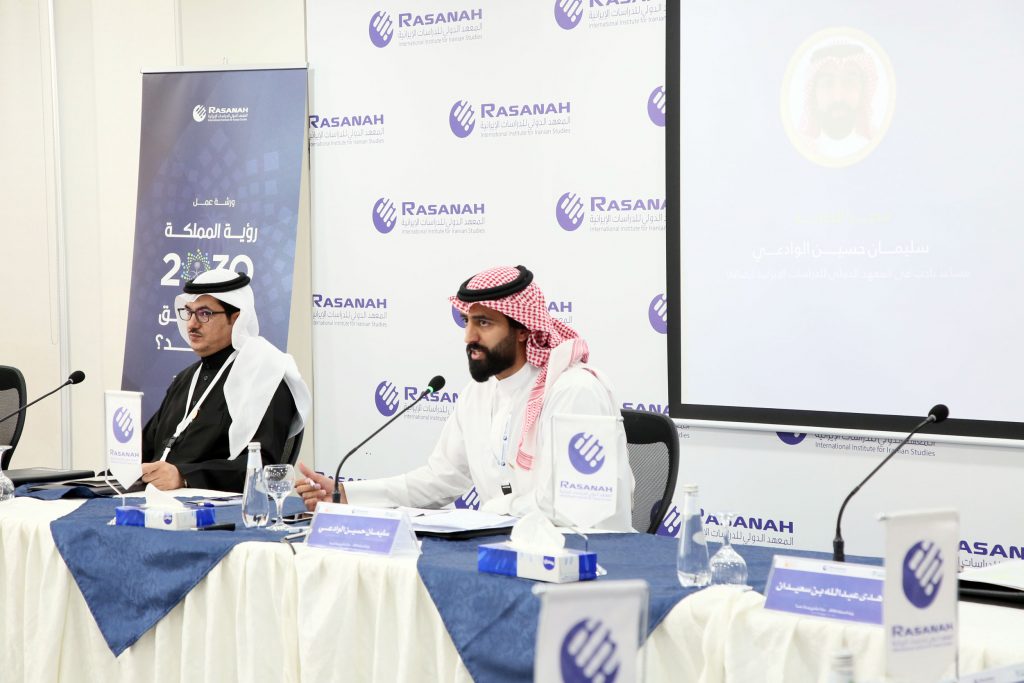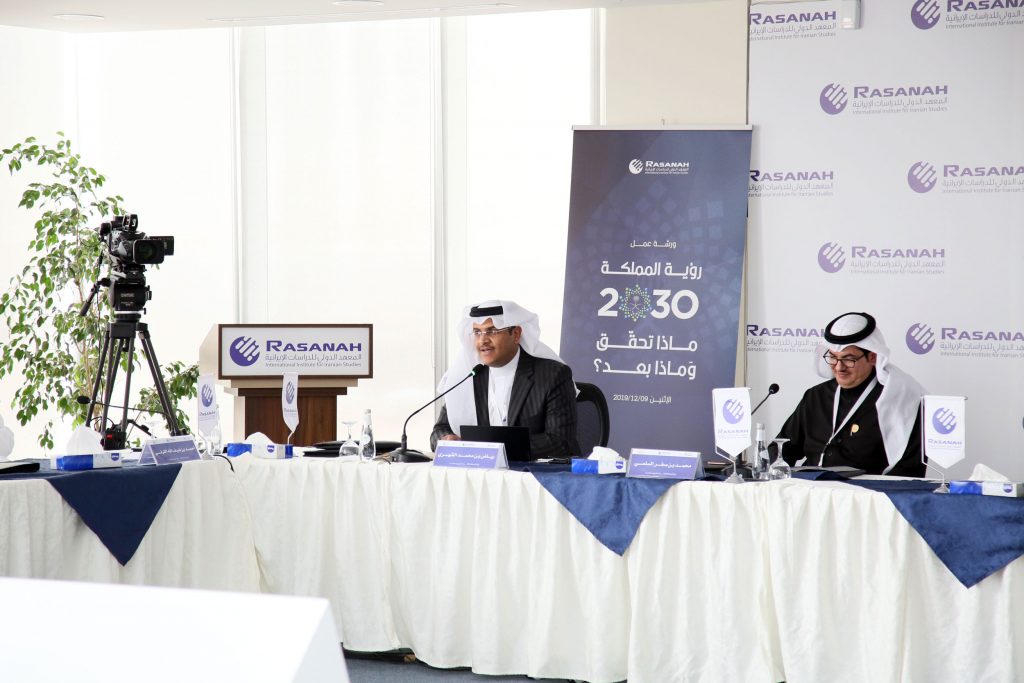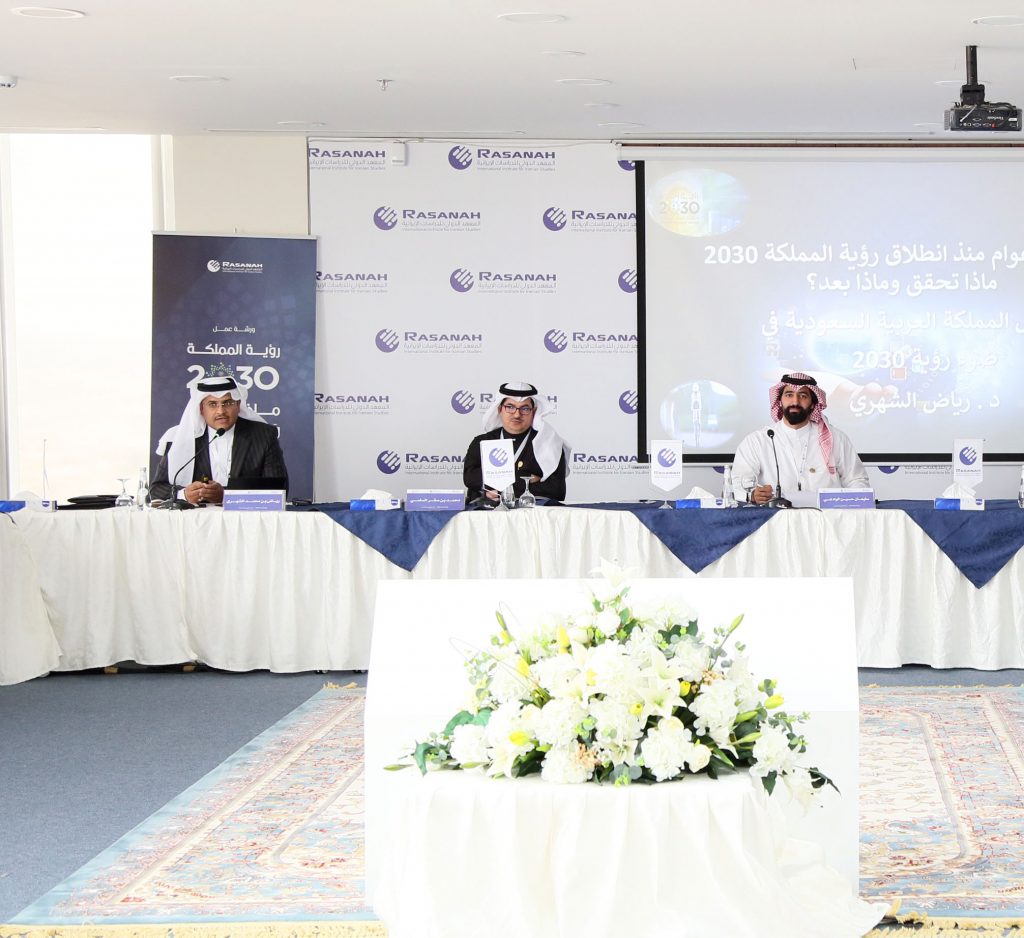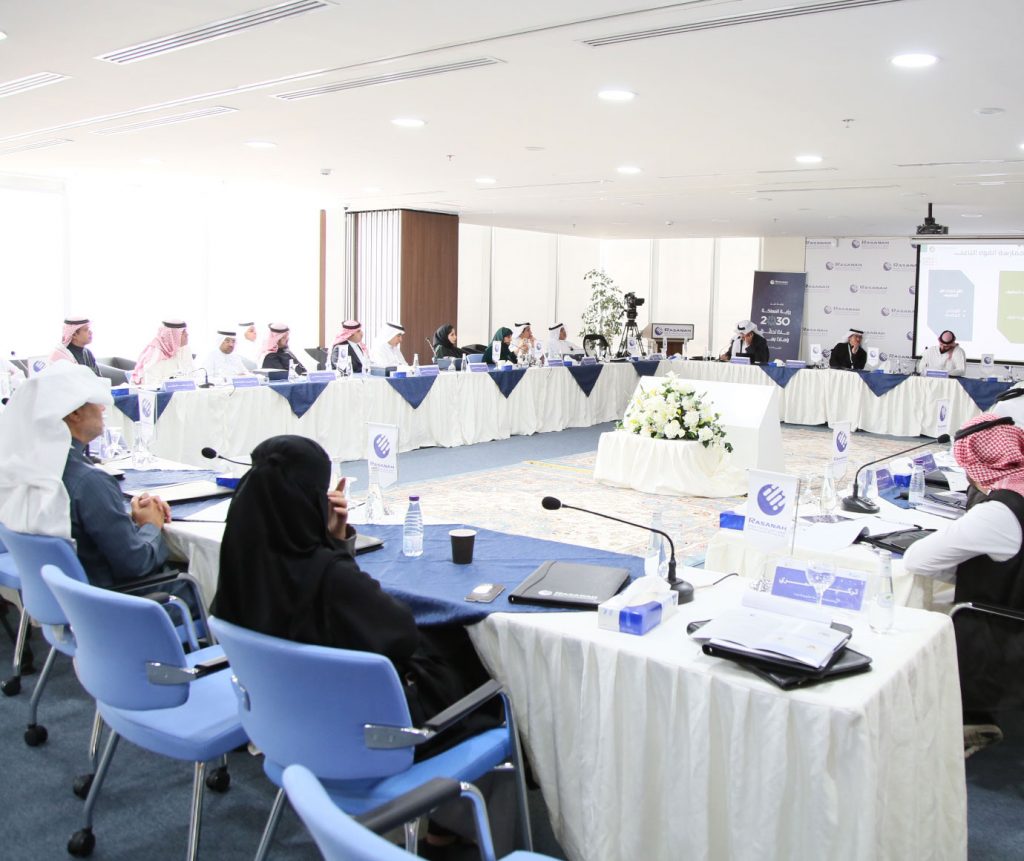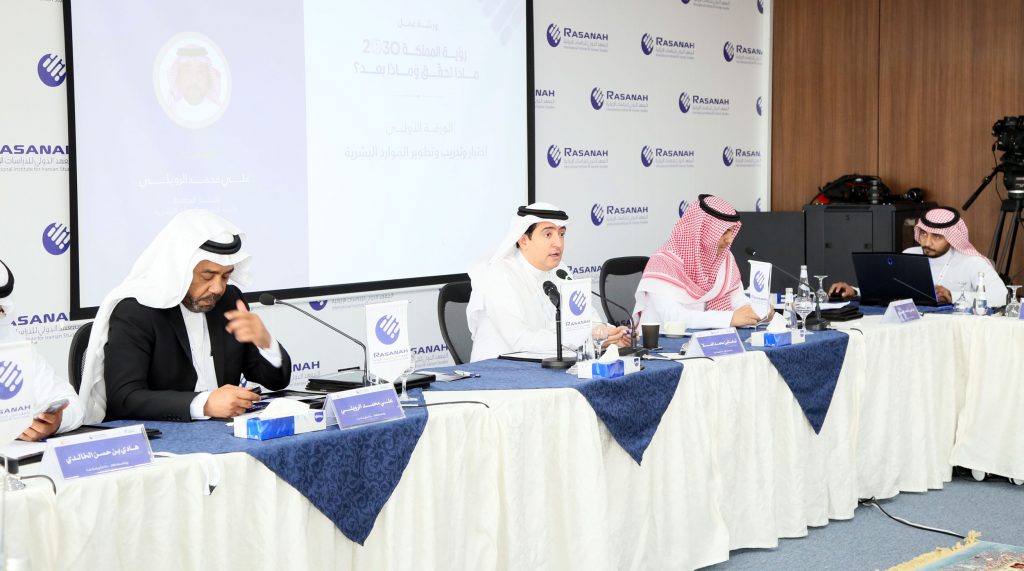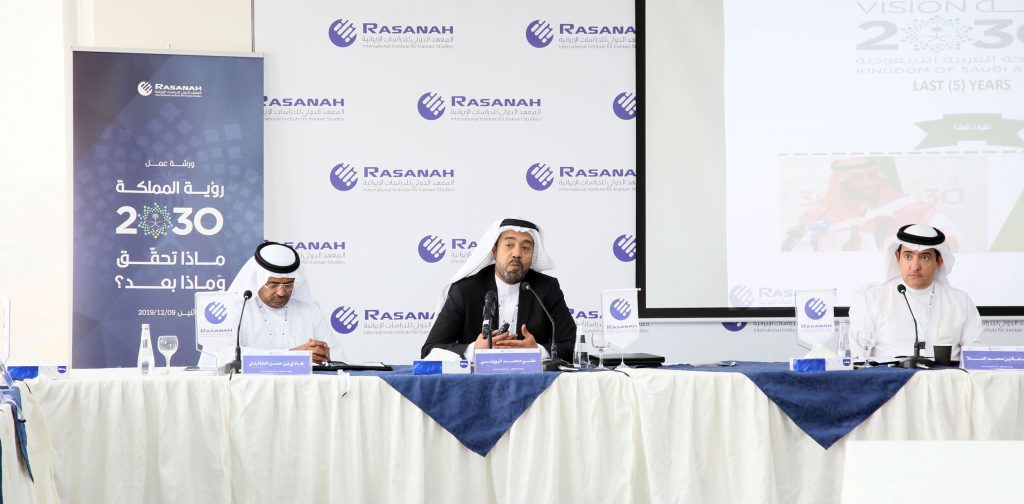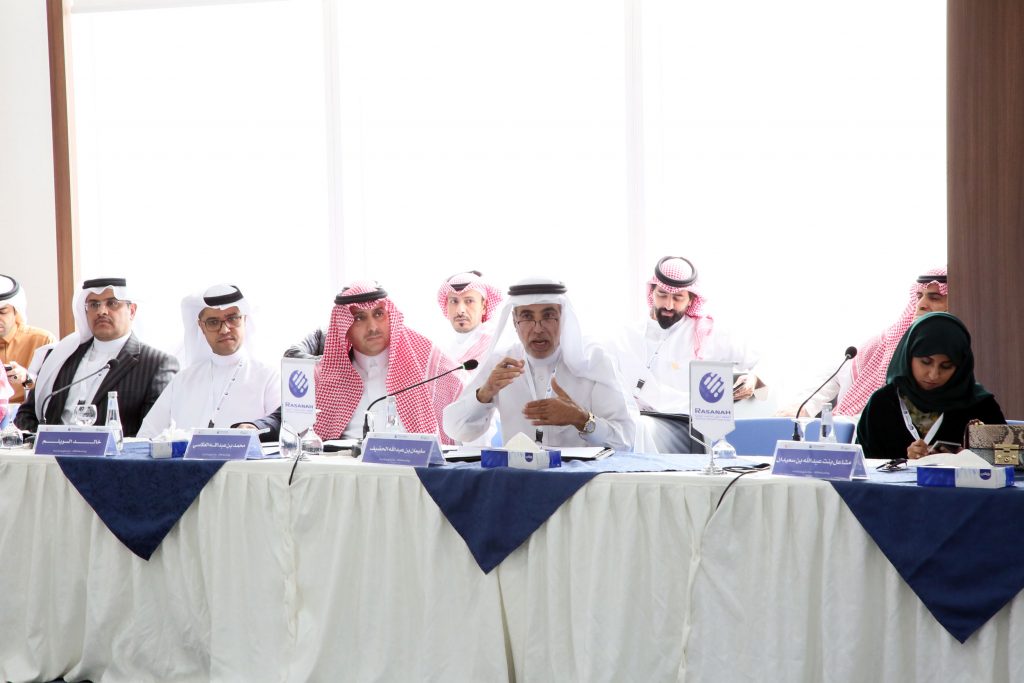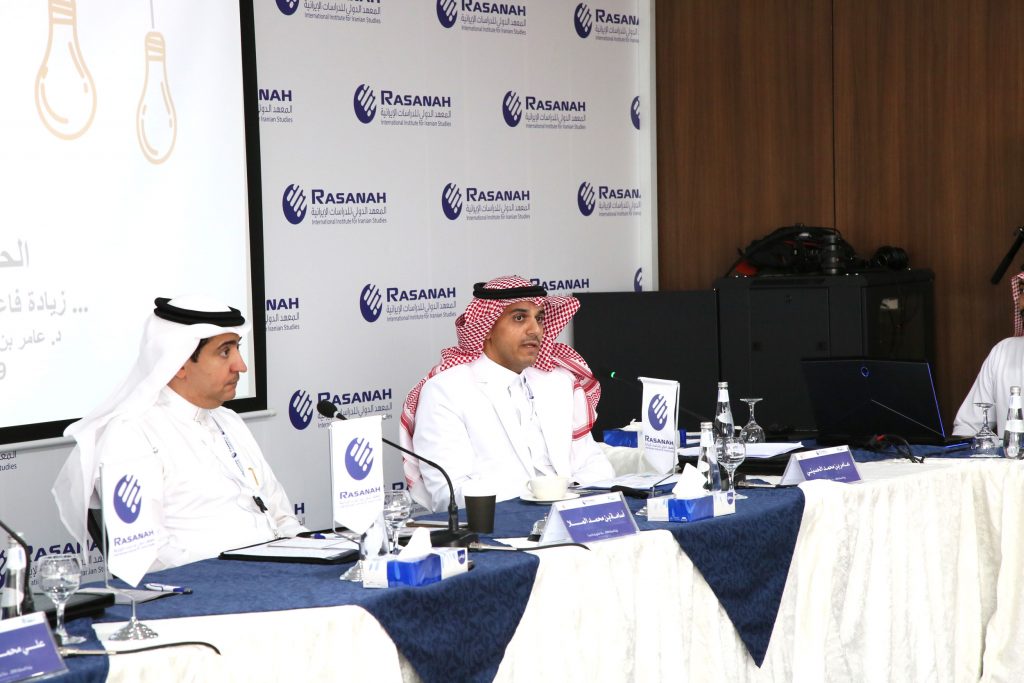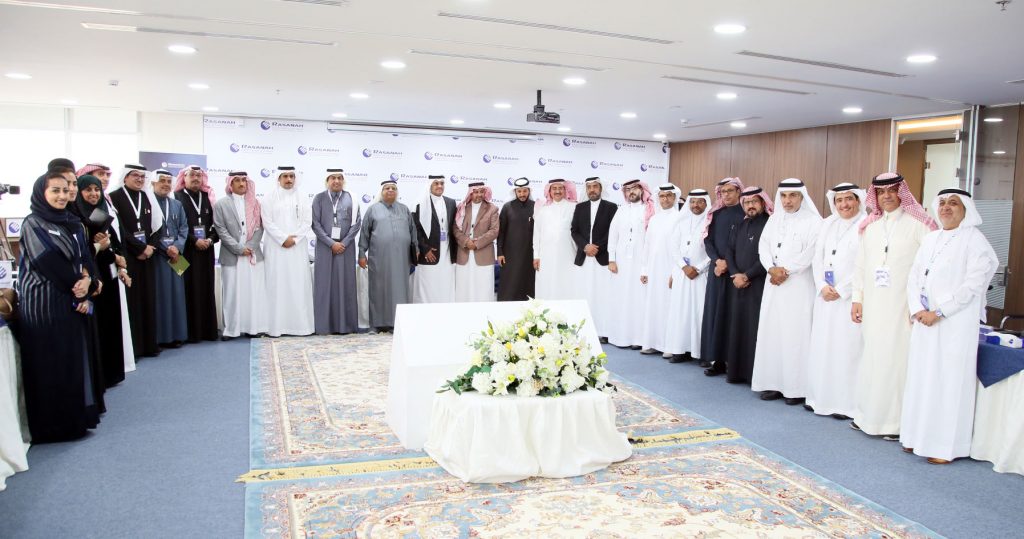
A workshop entitled, “Saudi Vision 2030: What Has Been Achieved and What Comes Next?” was held at the headquarters of the International Institute for Iranian Studies (Rasanah) in Riyadh today. A group of experts in the Kingdom’s Vision 2030 participated in the workshop. It started with a speech delivered by the President of the Institute and its founder, Dr. Mohammed S. Alsulami. In his opening address, Dr. Alsulami confirmed that the Institute’s intent in organizing the workshop was to assess what had been achieved since the inauguration of the Saudi Vision 2030 and to provide an objective assessment of the progress that has been made to date. In addition, the workshop’s intent was to provide decision-makers with new ideas and proposals to ensure Vision 2030 is accomplished in the best way possible.
The first session, moderated by the Vice President of the Institute Dr. Ahmed bin Dhaifallah Alqarni, addressed what was planned at the beginning of the Kingdom’s Vision 2030, and what has been achieved. Dr. Abdullah bin Khaled bin Rabyan, an associate professor of economics at the Institute of Public Administration in Riyadh participated in this session.
In his paper, Dr. Abdullah bin Khaled bin Rabyan discussed the performance of Vision 2030 from an economic and development perspective according to international indicators. The Executive Director of the Center for Educational Outcomes Alignment with the Labor Market Dr. Adel bin Abdullah Alajaji discussed in his paper the strategic alignment and the overall transformation of Vision 2030. The discussants for both papers were two members of the Kingdom’s Shura Council, Dr. Fahd bin Khalaf Albadi; and Dr. Fahd bin Ahmed Alfifi, who is also the Director and consultant for business strategy and planning of the Saudi Railway Company (SAR).
The second session, entitled, “In the Next Ten Years Vision 2030: What Should the Focus Be on?” was moderated by Dr. Osama bin Muhammad Almullah, a human development trainer. In this session, Ali bin Mohammed Alruwaili, a consultant of planning and change management and human resources, talked about recruiting, training and developing human resources. The Director-General of the Internal Auditing Department at the Center for Communication and Knowledge Perspectives, Dr. Amer bin Muhammad Alhusseini, discussed in his paper the role of governance in boosting the effectiveness of the public sector. In his paper, Dr. Hadi bin Hassan Al-Khalidi discussed Saudi quality planning for Vision 2030. The discussants for these three papers were- Dr. Sulaiman bin Abdullah Hudhai, Professor of Management Information Systems at King Saud University, Dr. Turki bin Omar Buqshan, a faculty member at King Abdulaziz University, and Dr. Mohammed bin Abdullah Alakasi, Head of the Department of Quality Control in Riyadh’s Chamber of Commerce.
The third session, moderated by Sulaiman Alwadaei, a research assistant at the Institute, reviewed the “Future of the Kingdom in Light of the Realization of Vision 2030 and the Extent of Its Impact on Saudi’s National Reputation.” Alwadaei talked about national security issues. In his paper, Dr. Riyadh bin Mohammed Alshehri, a researcher, envisioned the future of the Kingdom in light of the realization of Vision 2030. Dr. Huda bin Abdullah bin Saidan, a faculty member at King Saud University, addressed in her paper the impact of the success of Vision 2030 on the national reputation of the Kingdom. Dr. Fawaz bin Khasib Alonaizi, a retired naval Brigadier General, and Dr. Abdulaziz bin Sultan Almulhem, Undersecretary of the Ministry of Information, were the discussants for both papers.
Participants in the workshop emphasized their support for openness and the need to benefit from global cultures as well as to maintain the identity of the Kingdom, and to rely on Saudi experts to support the Kingdom’s economic transformation. In addition, they emphasized the importance of development projects to be assigned to Saudi developers and for them to be strictly monitored to ensure their quality. They also agreed on the need to ensure recruitment for projects is done at an optimal level to enhance output and quality within a specific timeframe regardless of regional and international conditions. They called for adopting a professional structure as a national reference point to recruit, attract and assign the required human resources in all leading, professional, planning, organizational and consulting groups for Vision 2030. Finally, they recommended activating the role of governance at the national level, in particular, internal auditing, risk management, accountability, and disclosure to ensure the best possible and efficient outcomes in all of the projects planned for Vision 2030.

